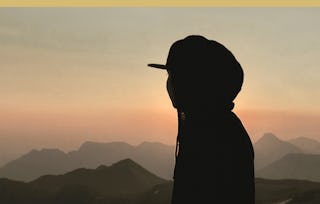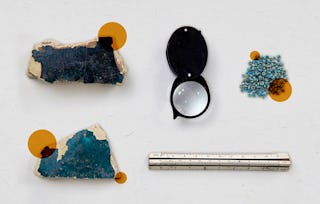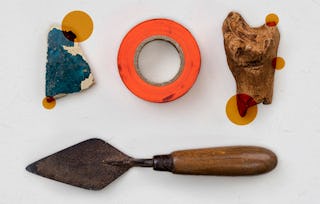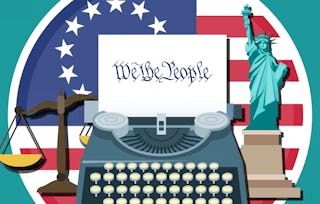This course introduces learners to applied public history: understanding and interpreting the past today, and engaging diverse communities in the practice of making and sharing histories. The course draws on project case studies, expert insights and diverse perspectives to model exciting approaches to researching and sharing the history of places and people. Learners will develop a toolkit to apply in their own practice, by participating in discussion, quizzes, creative activities and mini masterclasses.
即将结束: 只需 199 美元(原价 399 美元)即可通过 Coursera Plus 学习新技能。立即节省

您将获得的技能
要了解的详细信息
了解顶级公司的员工如何掌握热门技能

该课程共有6个模块
In this first week, we’ll meet the course presenters, and explore place and history with help from Historic England, Layers of London and others. How do we get a sense of the history and heritage of a place, and how can we involve our communities in understanding the historic environment? We’ll look at the professional practice of describing historic places and buildings, as well as what maps can reveal about place and history – with special access to historic maps in the Institute of Historical Research archive, and reflections on 'deep mapping' in the crowdsourced Layers of London project. There's also a chance for you to introduce yourself: the first step in forming our virtual community and sharing our varied experiences and expertise.
涵盖的内容
5个视频2篇阅读材料3个作业2个讨论话题
This week, we'll explore some fantastic case-study projects, to discover fascinating stories from history, and approaches to recovering and sharing the past. With the help of Youth Club Archive, we'll reflect on different approaches to collecting and telling stories, with varied audiences in mind. Through the Victoria County History 'Red Boxes' project, we'll look at how stories can be told through objects. And we'll look at how a project gathering the oral histories of Syrian refugees brings together different participants and communities.
涵盖的内容
3个视频2篇阅读材料2个作业1次同伴评审1个讨论话题
Where does applied public history meet creative practice? This week, we'll learn from a range of projects to explore what art, and artistic collaborations, can bring to interpretation of the past, to examine historical re-enactment and costumed interpretation, and to look at how a creative approach to mapping might draw a place and its history in imaginative, thought-provoking and engaging ways. There's also an opportunity to try your own creative skills by joining in a creative masterclass! Whether you're naturally an artistic type or not, this week is an opportunity to consider creative approaches for your own applied public history work and projects, and to reflect on what these methods facilitate.
涵盖的内容
3个视频2篇阅读材料3个作业2个讨论话题
Anniversaries, statues, blue plaques and monuments - history is all around us in the present, in our places and in our public debates. This week, we'll examine how history is commemorated today, with attention to lines of exclusion and absences. We'll look at strategies for mobilising history to make positive interventions in present-day society, with perspectives from the #RememberHer project on female memorials in London, the Haringey Peace Forum (working on World War 1 conscientious objectors), and History Workshop Online, with their activist approach to 'history of the present'.
涵盖的内容
3个视频2篇阅读材料3个作业2个讨论话题
How do you transform an 'audience' into active researchers? What can engaged, participatory research and co-production add to our understanding of the past and its significance in the present? This week we'll talk to Layers of London, the Victoria County History in Leicestershire, and the Runnymede Trust's 'Our Migration Story' project team, to explore new approaches to uncovering history, from community archive work to crowdsourcing.
涵盖的内容
2个视频3篇阅读材料3个作业2个讨论话题
Applied Public History is all about communication. This week, we'll return to the core thread of communication which has run across the course, consolidating our skills with attention to some new case studies, and returning to others. We'll also step back and think about evaluation and how to identify opportunities for future development - including a chance for you to reflect on your own participation in this course. We'll hear from projects including 'Being Human' - a National Festival of the Humanities, Layers of London, #RememberHer, and more.
涵盖的内容
2个视频3篇阅读材料2个作业1次同伴评审2个讨论话题
位教师

从 History 浏览更多内容
 状态:免费试用
状态:免费试用University of Colorado Boulder
 状态:免费试用
状态:免费试用Rice University
 状态:免费试用
状态:免费试用Rice University
 状态:预览
状态:预览University of Pennsylvania
人们为什么选择 Coursera 来帮助自己实现职业发展




学生评论
113 条评论
- 5 stars
84.07%
- 4 stars
14.15%
- 3 stars
1.76%
- 2 stars
0%
- 1 star
0%
显示 3/113 个
已于 Apr 22, 2021审阅
I just will say that it worth every minute spent! Very inspiring, clear, interesting. Lot of examples. Boosts creativity even in such academic discipline as history. Beautiful speakers!
已于 Dec 19, 2020审阅
Very enjoyable course and inspires the use of social media and the internet to not only engage with the public, but to turn them into co-creators through crowdsourcing.Well doneDavid, Christchurch, NZ
已于 Feb 14, 2021审阅
Very professional and stimulating, with lots of good example projects to learn from.
常见问题
To access the course materials, assignments and to earn a Certificate, you will need to purchase the Certificate experience when you enroll in a course. You can try a Free Trial instead, or apply for Financial Aid. The course may offer 'Full Course, No Certificate' instead. This option lets you see all course materials, submit required assessments, and get a final grade. This also means that you will not be able to purchase a Certificate experience.
When you purchase a Certificate you get access to all course materials, including graded assignments. Upon completing the course, your electronic Certificate will be added to your Accomplishments page - from there, you can print your Certificate or add it to your LinkedIn profile.
Yes. In select learning programs, you can apply for financial aid or a scholarship if you can’t afford the enrollment fee. If fin aid or scholarship is available for your learning program selection, you’ll find a link to apply on the description page.
更多问题
提供助学金,
¹ 本课程的部分作业采用 AI 评分。对于这些作业,将根据 Coursera 隐私声明使用您的数据。




